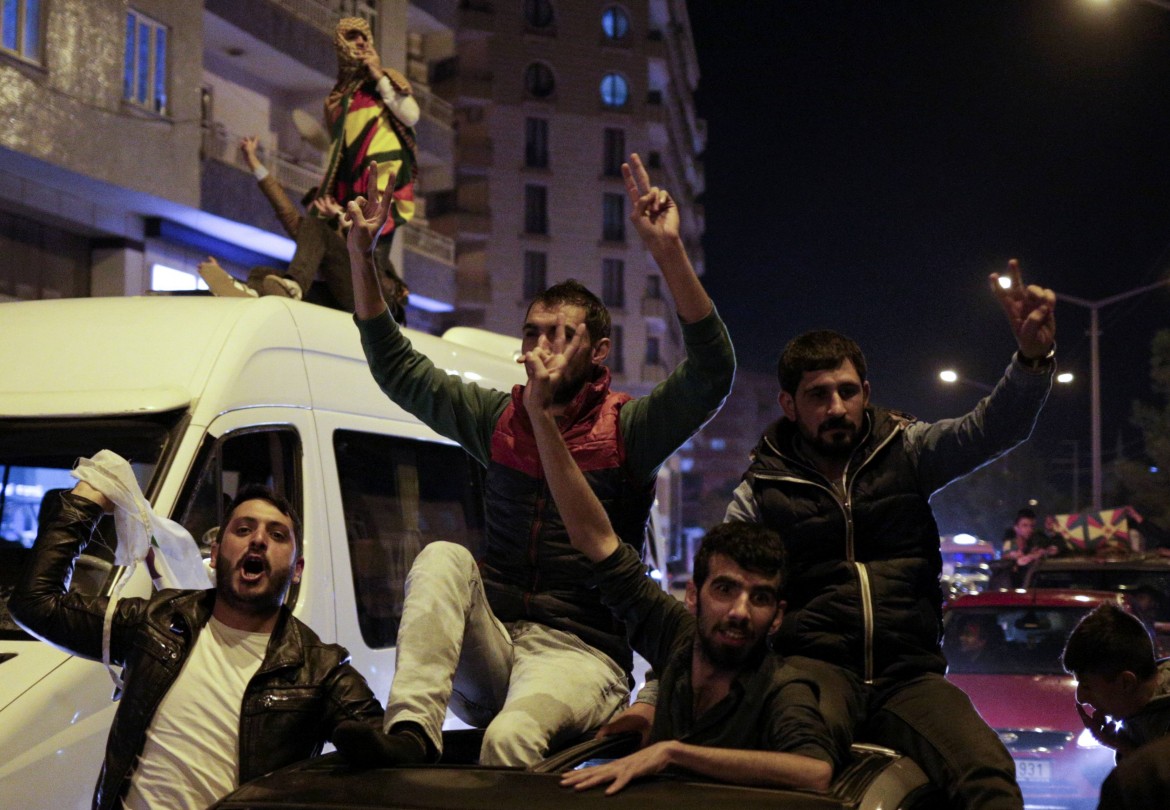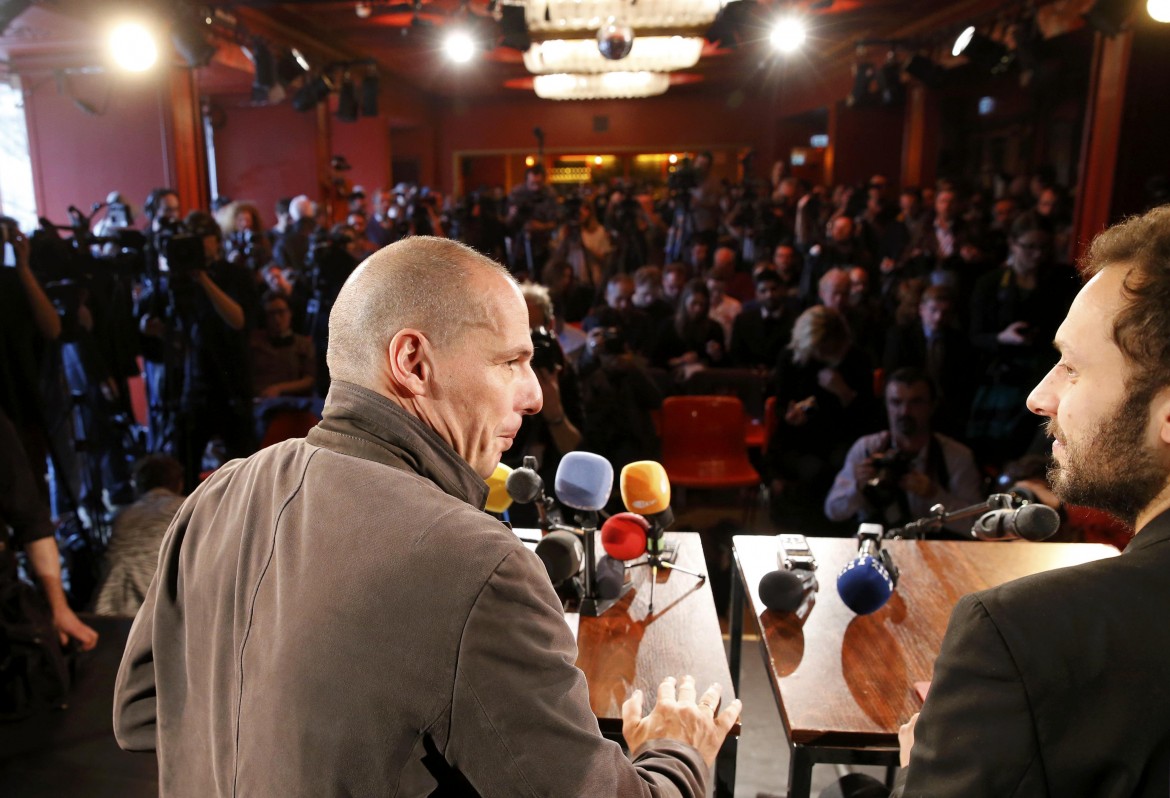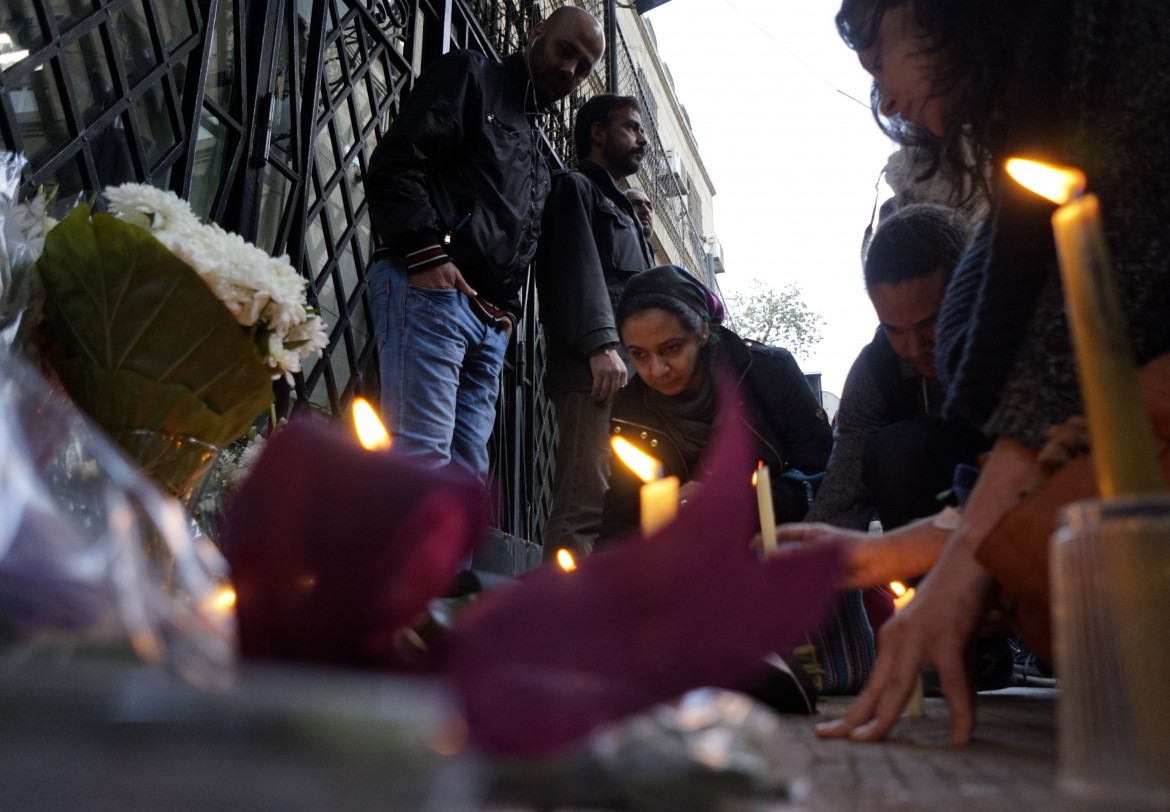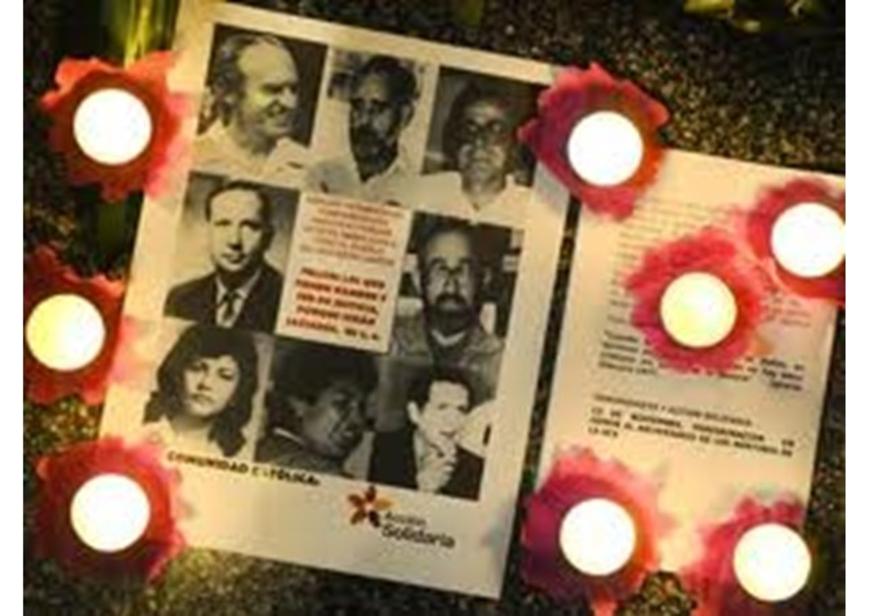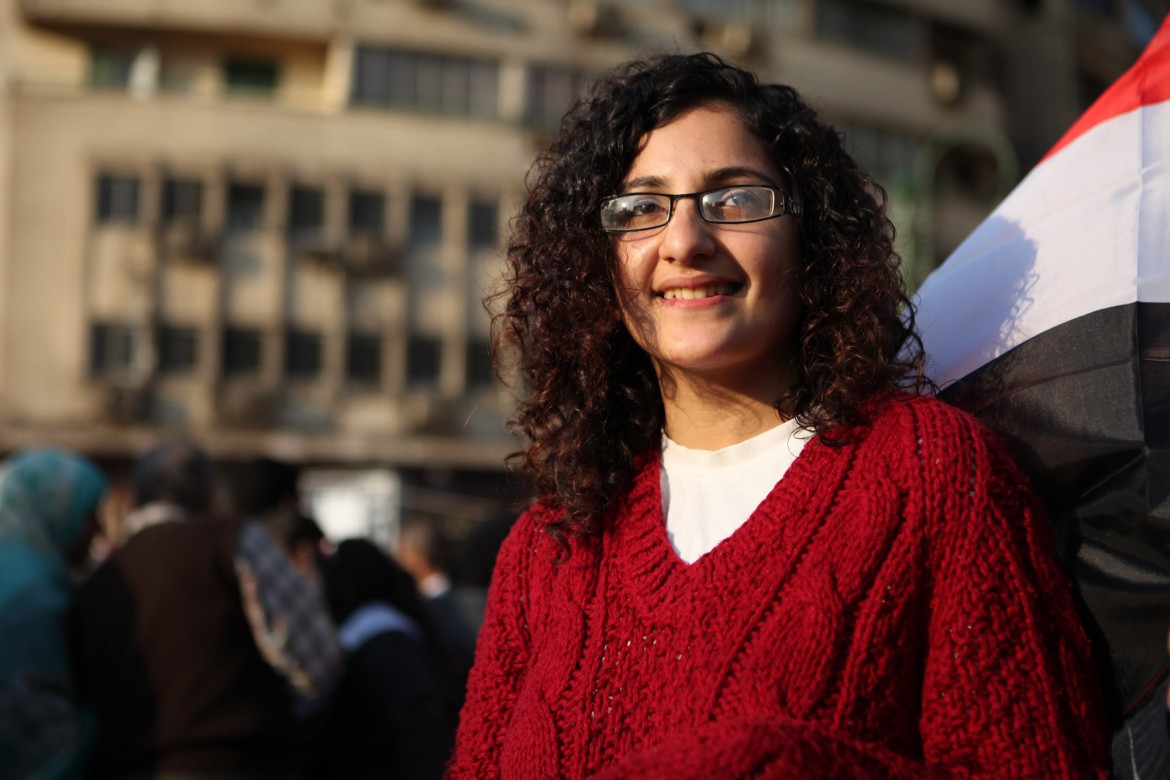When polling stations closed in Kurdistan on Sunday night, there were many doubts and few certainties. The first certainty was that you could easily find young people on the streets of Cizre saying: “Anyone is welcome in our neighborhood, but not the police. They have to stay out.” The neighborhood is Nur, in the center of the city near the Syrian border, which houses the headquarters of the People’s Democratic Party, or HDP.
In this district, the HDP won 93.22 percent of the vote. And here in this same neighborhood, as well as in Cudi, Sur and Yafes, the Turkish special forces killed about 21 people in a siege that lasted eight days, from Sept. 4-12.
The Kurds’ only “crime” was to have formed People’s Assemblies to practice self-government. To date, there are 10 assemblies — as many as there are neighborhoods in the city — that have established their own municipal authorities that provide some of the services of government. For each municipality, there are two elected spokespeople who, along with the other residents, provide services, such as reconstructing houses destroyed by the Turkish military.
The municipalities have also erected barricades to protect people from further attacks. During the siege, the barricades kept the police and special forces away. But on voting day, there were numerous policemen and soldiers outside and inside schools where voting was taking place. A police officer was eager to tell me he only wanted to protect people and guarantee the democratic exercise of the right to vote.
“Do you see those barricades out there?” he said, pointing. “Does that seem normal? We are here because there shouldn’t be [barricades].”
The intimidation I saw in the polling stations was numerous and particularly troubling. I saw armored vehicles and soldiers aiming their machine guns at people entering school grounds to vote. Sometimes their sights rotated to people in balconies and surrounding homes.
For each voting location, at least three armored vehicles and several police officers had been deployed, some of whom even stood at the doors of the polling stations. Others were inside the stations, patrolling the floors of the building.
The pressure was visible and heavy. Despite everything, there were no direct clashes on Sunday. Throughout the Kurdish population, the objective was one and only one: to express their right to vote.
Many remained for hours outside the polling stations to make sure their vote had been counted. “We will defend our votes,” they said.
I stayed, too, to await the results. To avoid any tension, many were invited by their party representatives to return home. The armored vehicles carried out maneuvers and continued pointing their weapons even though the town was quiet.
But they weren’t used; the election results came out as expected. Within the hour, the first reports of the local results were reported in the form of small paper leaflets tossed from windows. There was a celebration, but it was short-lived.
Cizre and other parts of Kurdistan have been declared a special area, so all the ballot boxes had to be taken to a central office to be recounted. During this relocation, police shot tear gas at anyone who tried to follow and monitor the ballots boxes.
When the first official results came out, despite HDP obtaining again the minimum portion of votes required to enter parliament, the streets started to empty.
President Recep Tayyip Erdogan’s party this time won an absolute majority.
Soon, the streets of Cizre were filled with the acrid smell of tear gas. We heard several bursts of gunfire. The shooting went on for several hours before calm returned.
But then news quickly followed of violent clashes in other Kurdistan cities. In Diyarbakir, police used tear gas to disperse protesters and evacuated the local HDP headquarters, and in Nusaybin, a car bomb exploded, wounding 11 people.
- Originally published in Italian at il manifesto on Nov. 3 2015

